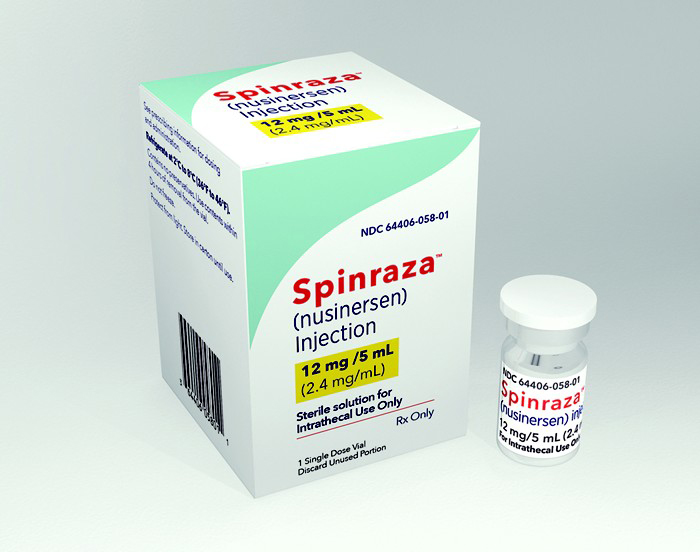Developers of SMA Therapy Spinraza to Be Honored with $3M Prize at ‘Oscars of Science’
Written by |

Pharmacologist C. Frank Bennett, PhD, and biochemist Adrian R. Krainer, PhD, have been awarded a prestigious 2019 Breakthrough Prize in Life Sciences for their role in the development of Spinraza (nusinersen), a therapy for spinal muscular atrophy (SMA).
Bennett, of Ionis Pharmaceuticals, and Krainer, of Cold Spring Harbor Laboratory, will receive the award Nov. 4 at the seventh annual Breakthrough Prize ceremony, widely known as the “Oscars of Science.” They will share $3 million in prize money, according to a press release.
The awards were announced Oct. 17 by the Breakthrough Prize Foundation.
In all, nine researchers will be honored with a total of $22 million for achievements in the life sciences, fundamental physics and mathematics, including breakthroughs in a super-resolution imaging technology that uncovered new internal cell structures; the discovery of a mechanism that triggers immune response, possibly having an effect on cancer and autoimmune disorders; insight into the effect of abnormal numbers of chromosomes on the human body; theoretical advances in the discovery of a new class of electronic materials; and contributions to the Langlands mathematics program.
In December 2016, Spinraza, marketed by Biogen, became the first therapy approved by the U.S. Food and Drug Administration for treating SMA, a rare disease that affects up to 1 in 10,000 people. Bennett and Krainer have collaborated on SMA research since 2004, according to STAT News.
Ask questions and share your knowledge of SMA in our forums.
SMA is caused by a mutation in the survival motor neuron gene 1 (SMN1). In a healthy person, this gene produces a protein called the survival motor neuron protein, which is critical to the function of the nerves that control muscles. Without a proper level of SMN protein, motor neurons in the spinal cord are lost, preventing muscles from receiving brain signals.
Survival motor neuron2 (SMN2) is a closely related gene that’s not believed to be affected in SMA, but does not produce enough functional SMN protein on its own. By targeting the SMN2 gene, Spinraza has been shown to increase the production of full-length SMN proteins.
The Ionis-developed treatment is expensive, however. According to a report in Forbes magazine, it costs $750,000 for the first year, when a higher dose is administered, and $350,000 annually after that.
To be held at the NASA Ames Research Center in Mountain View, California, the award ceremony will be hosted by actor, producer, and philanthropist Pierce Brosnan. It will be broadcast live on Nat Geo TV and on Facebook.
In addition to the main prizes, six New Horizons prizes worth $100,000 each were awarded to seven physicists and five mathematicians for early-career achievements in their respective fields.
More information on the Breakthrough Prizes is available here.



